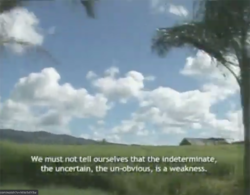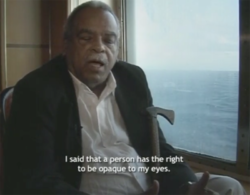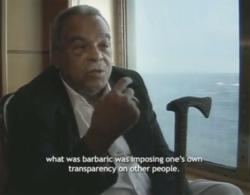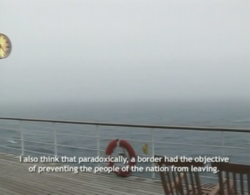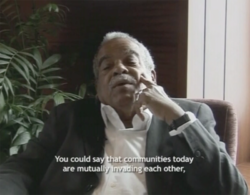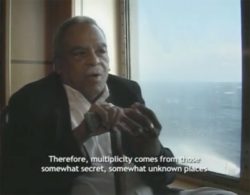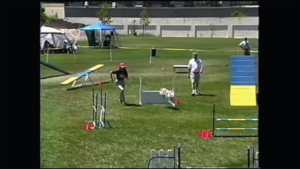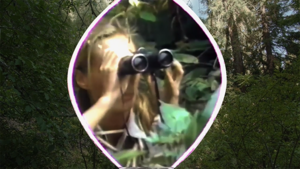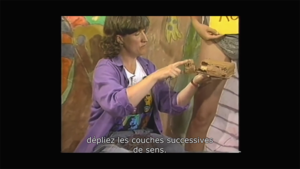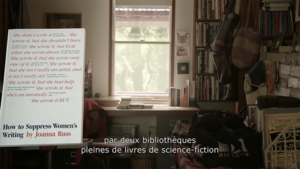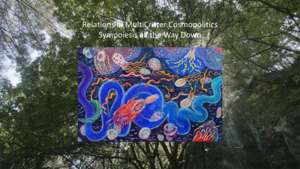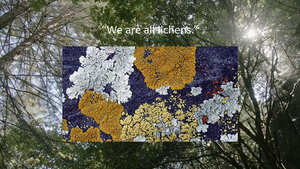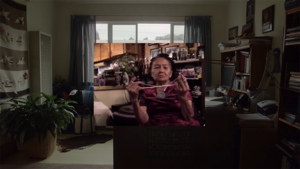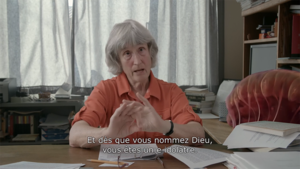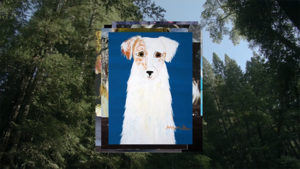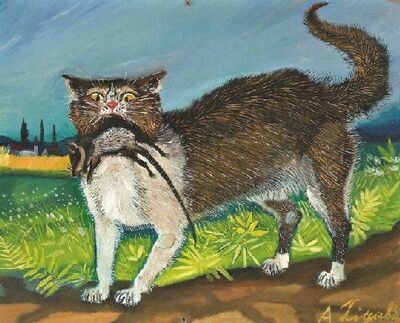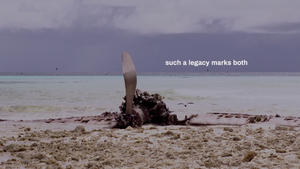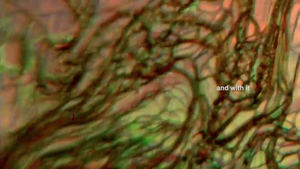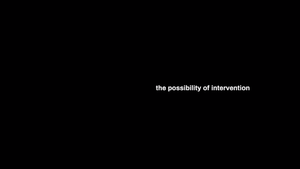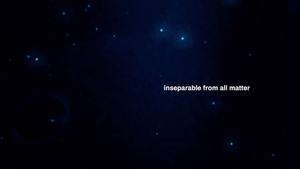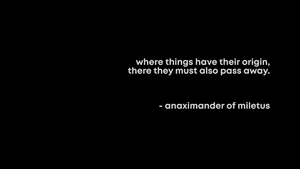User:Annasandri/methods12
"...Such fear and fanciful notions took possession of the living that almost all of them adopted the same cruel policy, which was entirely to avoid the sick and everything belonging to them. By so doing, each one thought he would secure his own safety.”
“E lasciamo stare che l’uno cittadino l’altro schifasse e quasi niuno vicino avesse dell’altro cura e i parenti insieme rade volte o non mai si visitassero e di lontano: era con sì fatto spavento questa tribulazione entrata ne’ petti degli uomini e delle donne, che l’un fratello l’altro abbandonava e il zio il nipote e la sorella il fratello e spesse volte la donna il suo marito; e (che maggior cosa è e quasi non credibile), li padri e le madri i figliuoli, quasi loro non fossero, di visitare e di servire schifavano.”
Decameron [1349], Giovanni Boccaccio describing the black death
Wikipedia has a pandemics and economic crisis chart. Is nice.
on Covid-19:
►"Is there an erotics of coronavirus?"
►“I’ve come to shut down the machine whose emergency brake you couldn’t find.”
►Vegetable since the pandemic
►Italian major going crazy about people refusing to stay at home with a lo-fi soundtrack here
𝕣𝕖𝕒𝕕𝕚𝕟𝕘𝕤 & 𝕧𝕚𝕖𝕨𝕚𝕟𝕘𝕤
Oɴᴇ ᴡᴏʀʟᴅ ɪɴ ʀᴇʟᴀᴛɪᴏɴ- Eᴅᴏᴜᴀʀᴅ Gʟɪssᴀɴᴛ ʙʏ Mᴀɴᴛʜɪᴀ Dɪᴀᴡᴀʀᴀ
rhizome [noun] 1. a rootlike subterranean stem, commonly horizontal in position, that usually produces roots below and sends up shoots progressively from the upper surface; 2. a term used to describe theory and research that allows for multiple, non-hierarchical entry and exit points in data representation and interpretation (Gilles Deleuze and Félix Guattari).
img1 ✸ diaspora
img2 ✸ uncertaincy
img3 ✸ democracy
img4 ✸ opacity
img5 ✸ transparency
img6 ✸ border
img7 ✸ community
img8 ✸ multiplicity
A ɢɪᴀɴᴛ ʙᴜᴍᴘᴛɪᴏᴜs ʟɪᴛᴛᴇʀ- Iɴᴛᴇʀᴠɪᴇᴡ ᴡɪᴛʜ Dᴏɴɴᴀ Hᴀʀᴀᴡᴀʏ
notes:
semiotic materialism is the idea that materialism is always situated meaning-making and never simply representation.
situated knowledges, an effort to think outside the duality of objectivity-relativism
It is not about the opposition between objectivity and relativism, is about the thickness of worlding, is about being for some worlds and not for others
the whole story is about gerunds, -WORLDING -BODYING -EVERYTHING-ING
strategic essentialism (from Gayatri Chakravorty Spivak’s theory)
“there is a strategic use to speaking the same idiom as the people that you are sharing the room with”
the category of PLAY
Play captures a lot of what is going on int his world- there’s a need to develop practices for thinking about those forms of activity that are not caught by functionality, those which propose the possible-but-not-yet, or that which is not-yet but still open.
We can’t do that if we do nothing but critique. We need critique;But is not opening the sense of what might yet be.
Mourning without despair
Pro-tech but skeptical about the Techno-fix: because of their profound immersion in techno capitalism and their disengagement from communities of practise. (solar panels/fracking:is important to be aware of the supply chain that lays underneath technologies like renewable energy.
Sᴛᴏʀʏᴛᴇʟʟɪɴɢ ғᴏʀ ᴇᴀʀᴛʜʟʏ sᴜʀᴠɪᴠᴀʟ-Dᴏᴄᴜᴍᴇɴᴛᴀʀʏ ᴀʙᴏᴜᴛ Dᴏɴɴᴀ Hᴀʀᴀᴡᴀʏ ʙʏ Fᴀʙʀɪᴢɪᴏ Tᴇʀʀᴀɴᴏᴠᴀ
img1 ✸ home
img2 ✸ dog race
img3 ✸ exploring
img4 ✸ cake
img5 ✸ Joanna Russ, feminist science-fiction
img6 ✸ relations
img7 ✸ lichens
img8 ✸ jeu de ficelle
img9 ✸ idolatrie
img10 ✸ dog
Uʀsᴜʟᴀ K. Lᴇ Gᴜɪɴ ᴀɴᴅ Mᴀʀɢᴀʀᴇᴛ Kɪʟʟᴊᴏʏ - Mʏᴛʜᴍᴀᴋᴇʀs & Lᴀᴡʙʀᴇᴀᴋᴇʀs: Aɴᴀʀᴄʜɪsᴛ Wʀɪᴛᴇʀs Oɴ Fɪᴄᴛɪᴏɴ
Eᴠᴇɴᴛᴜᴀʟ ᴄᴏɴsɪsᴛᴇɴᴄʏ-Mɪᴄʜᴀᴇʟ Mᴜʀᴛᴀᴜɢʜ
here
notes:
the etherpad story, a browser collaborative text editor. Wikipedia has a voice Collaborative real-time editor that traces the development.
2008, Etherpad!: complex,but worth reading
two algorithms: Operational transformation OT/ Conflict-free replicated data type
Etherpad documents are based on the concept of CHANGESETS (=list of differences between two successive versions in the repository)- something in common with Wikipedia articles- to store the history of an article.
In etherpad each change in considered a “revision”.
Easysync- merging algorithm < —< Operational transformation
(donna haraway on Diffraction: Diffraction does not produce "the same" displaced, as reflection and refraction do. Diffraction is a mapping of interference, not of replication, reflection, or reproduction. A diffraction pattern does not map where differences appear, but rather maps where the effects of difference appear.)
CRDT model- to surpass OT- Kleepman
shift from speaking of text to speaking of data- information losing its body Katherine Hayles
Technotexts: When a literary work interrogates the inscription technology that produces it, it mobilizes reflexive loops between its imaginative world and the material apparatus embodying that creation as a physical presence. (Writing machines, Katherine Hayles)
NICE!: Your World of Text (2009), Andrew Badr
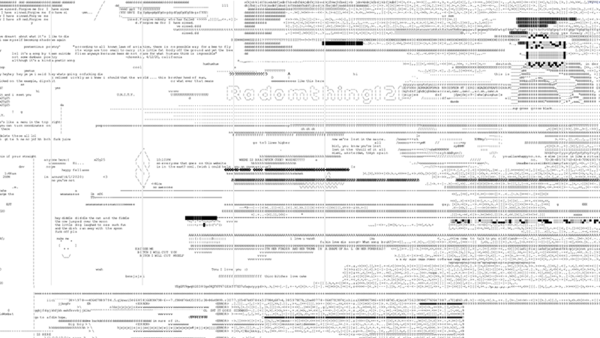
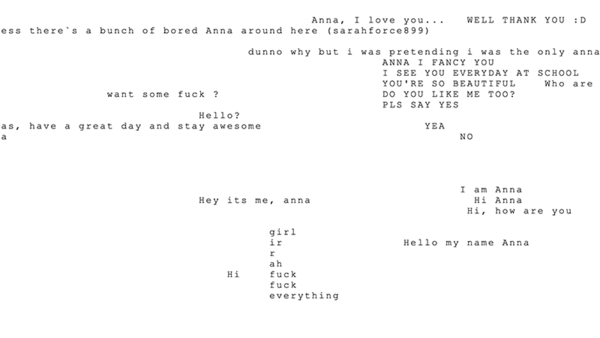
What is an Angel? from Feeling Backward, Heather Love
notes:So far, a simultaneously psychoanalytic and historicist loss—perhaps replacing orsubsuming structuralist lack—has emerged as one of fin de siècle queer theory’s key terms . . . I would like to suggest, however, that this powerful turn toward loss—toward
failure, shame, negativity, grief, and other structures of feeling historical—may also be apremature turn away from a seemingly obsolete politics of pleasure that could, in fact, berenewed by attention to temporal difference. This is, melancholic queer theory may
acquiesce to the idea that pain—either a pain we do feel or a pain we should feel but cannot, or a pain we must laboriously rework into pleasure if we are to have any pleasure at all—is the proper ticket into historical consciousness. Elizabeth Freeman
Bad feelings have a certain prestige in the academic discourse: 1. seriousness;2. long philosophical tradition around negativity. lack>>loss
Connection with a protestant ethic >> “pleasure cannot be the ground of anything productiove at all”
H:
feelings that are not good for action.
Forms of failure that are less closely tied to action
<While feeling bad can result in acting out, being fucked up can also make even the apparentlysimple act of “fucking shit up” seem out of reach.>
—Need to imagine a politics that allows for damage
<Given this state of affairs, the question really is not whether feelings such as grief, regret, and despair have a place in transformative politics: it would in fact be impossible to imagine transformative politics without these feelings. Nor is the question how to cultivate hope in the face of despair, since such calls tend to demand the replacement of despair with hope. Rather, the question that faces us is how to make a future backward enough that even the most reluctant among us might want to live there./>
H̲a̲u̲n̲t̲e̲d̲ L̲a̲n̲d̲s̲c̲a̲p̲e̲s̲ o̲f̲ t̲h̲e̲ A̲n̲t̲h̲r̲o̲p̲o̲c̲e̲n̲e̲ f̲r̲o̲m̲ A̲r̲t̲s̲ o̲f̲ L̲i̲v̲i̲n̲g̲ o̲n̲ a̲ D̲a̲m̲a̲g̲e̲d̲ P̲l̲a̲n̲e̲t̲ b̲y̲ G̲a̲n̲,̲ E̲l̲a̲i̲n̲e̲,̲ A̲n̲n̲a̲ T̲s̲i̲n̲g̲,̲ H̲e̲a̲t̲h̲e̲r̲ A̲n̲n̲e̲ S̲w̲a̲n̲s̲o̲n̲,̲ a̲n̲d̲ N̲i̲l̲s̲ O̲l̲e̲ B̲u̲b̲a̲n̲d̲t̲
notes:[…]Will they leave only ghosts? Peter Funch, biologist
anthropocene>”great acceleration”
<Ghostsbecome tangible through the form of ancient chestnut stools. Centuries ofgraing, cultivation, trade, taxation, and disease are inscribed onto theirstructure and shape. The landscape emerges om ghostly entanglements:the many histories of life and death that have made these trees, this place>
see where extinction leave traces >where the deads are visible next to the living ones
anthropogenic loss-humans forgetting the landscape as it was before their reshaping: “shifting baseline syndrome”
<Admiring one landscape and its biological entanglements often entails forgetting many others. >
forget, but then ghost will remind us
<Ghosts, too, are weeds that whisper tales of the many pasts and yet-to-comes that surround us. Considered through ghosts and weeds, worlds have ended many times before.>
death: of a forest, of a city, of a friendship, of a leaf, of promises and small stories.
<The landscapes grown om such endings are our disaster as well as our weedy hope.>
Deborah Bird Rose- “double death”- as extinction which exiinguishes times yet to come.
Karen Barad- haunted landscapes as strange topologies- ““Every bit of spacetimemattering is … entangled inside all others.”
Hélène Cixous- ghosts are uncanny-in the anthropocene life persists in the shadow of mass death.
Ladders Are Not the Only Kind of Time
Europe-northerns renassance thinkers claimed that life had evlved from simple to complex- optimistic view that places humans at the top of the grand chain of being- assumed that we were all in a sigle time, all in a single trajectory.
Lichens-symbiotic assemblages of species: filamentous fungi and photosynthetic algae or cyanobacteria- are made of filamentous fungi that are potentially immortal. <When we notice their tempo, rather than impose ours, they open us to the possibility of a different kind of livability> many kinds of time that disturb our conventional sense of time.<These temporal
feats alert us that the time of modernity is not the only kind of time, and that our metronomic synchrony is not the only time that matters.>
Japanese polymath Minakata Kumagusu- rather taht dismissing folk knowledge, he incorporated approaches from it into his scientific work. <This is a reason to learn om ghosts, however unfamiliar their forms. Our experiments combine natural history and vernacular legacies, learning om precedents nourished by other times and places.>
img1,2 ✹ paintings by Antonio Ligabue
4 Waters: Deep Implicancy by Denise Ferreira da Silva and Arjuna Neuman
A few rules for predicting the future by Octavia E. Butler
“SO DO YOU REALLY believe that in the future we’re going to have the kind of trouble you write about in your books?” a student asked me as I was signing books after a talk. The young man was referring to the troubles I’d described in Parable of the Sower and Parable of the Talents, novels that take place in a near future of increasing drug addiction and illiteracy, marked by the popularity of prisons and the unpopularity of public schools, the vast and growing gap between the rich and everyone else, and the whole nasty family of problems brought on by global warming.“I didn’t make up the problems,” I pointed out. ‘All I did was look around at the problems we’re neglecting now and give them about 30 years to grow into full-fledged disasters.’
“Okay,” the young man challenged. “So what’s the answer?”
“There isn’t one,” I told him.
“No answer? You mean we’re just doomed?” He smiled as though he thought this might be a joke.
“No,” I said. “I mean there’s no single answer that will solve all of our future problems. There’s no magic bullet. Instead there are thousands of answers–at least. You can be one of them if you choose to be.”
Several days later, by mail, I received a copy of the young man’s story in his college newspaper. He mentioned my talk, listed some of my books and the future problems they dealt with. Then he quoted his own question: “What’s the answer?” The article ended with the first three words of my reply, wrongly left standing alone: “There isn’t one.”
It’s sadly easy to reverse meaning, in fact, to tell a lie, by offering an accurate but incomplete quote. In this case, it was frustrating because the one thing that I and my main characters never do when contemplating the future is give up hope. In fact, the very act of trying to look ahead to discern possibilities and offer warnings is in itself an act of hope.
Learn From the Past
Of course, writing novels about the future doesn’t give me any special ability to foretell the future. But it does encourage me to use our past and present behaviors as guides to the kind of world we seem to be creating. The past, for example, is filled with repeating cycles of strength and weakness, wisdom and stupidity, empire and ashes. To study history is to study humanity. And to try to foretell the future without studying history is like trying to learn to read without bothering to learn the alphabet.
When I was preparing to write Parable of the Talents, I needed to think about how a country might slide into fascism–something that America does in Talents. So I reread The Rise and Fall of the Third Reich and other books on Nazi Germany. I was less interested in the fighting of World War II than in the prewar story of how Germany changed as it suffered social and economic problems, as Hitler and others bludgeoned and seduced, as the Germans responded to the bludgeoning and the seduction and to their own history, and as Hitler used that history to manipulate them. I wanted to understand the lies that people have to tell themselves when they either quietly or joyfully watch their neighbors mined, spirited away, killed. Different versions of this horror have happened again and again in history. They’re still happening in places like Rwanda, Bosnia, Kosovo and East Timor, wherever one group of people permits its leaders to convince them that for their own protection, for the safety of their families and the security of their country, they must get their enemies, those alien others who until now were their neighbors.
It’s easy enough to spot this horror when it happens elsewhere in the world or elsewhere in time. But if we are to spot it here at home, to spot it before it can grow and do its worst, we must pay more attention to history. This came home to me a few years ago, when I lived across the street from a 15-year-old girl whose grandfather asked me to help her with homework. The girl was doing a report on a man who had fled Europe during the 1930′s because of some people called–she hesitated and then pronounced a word that was clearly unfamiliar to her–”the Nayzees?” It took me a moment to realize that she meant the Nazis, and that she knew absolutely nothing about them. We forget history at our peril.
Respect the Law of Consequences
Just recently I complained to my doctor that the medicine he prescribed had a very annoying side effect.
“I can give you something to counteract that,” my doctor said.
“A medicine to counteract the effects of another medicine?” I asked.
He nodded. “It will be more comfortable for you.”
I began to backpedal. I hate to take medicine. “The problem isn’t that bad.” I said. “I can deal with it.”
“You don’t have to worry,” my doctor said. “This second medication works and there are no side effects.”
That stopped me. It made me absolutely certain that I didn’t want the second medicine. I realized that I didn’t believe there were any medications that had no side effects. In fact, I don’t believe we can do anything at all without side effects–also known as unintended consequences. Those consequences may be beneficial or harmful. They may be too slight to matter or they may be worth the risk because the potential benefits are great, but the consequences are always there. In Parable of the Sower, my character put it this way:
All that you touch/You Change
All that you Change/Changes you
The only lasting truth/Is Change
God/Is Change
Be Aware of Your Perspective
How many combinations of unintended consequences and human reactions to them does it take to detour us into a future that seems to defy any obvious trend? Not many. That’s why predicting the future accurately is so difficult. Some of the most mistaken predictions I’ve seen are of the straight-line variety–that’s the kind that ignores the inevitability of unintended consequences, ignores our often less-than-logical reactions to them, and says simply, “In the future, we will have more and more of whatever’s holding our attention right now.” If we’re in a period of prosperity, then in the future, prosperity it will be. If we’re in a period of recession, we’re doomed to even greater distress. Of course, predicting an impossible state of permanent prosperity may well be an act of fear and superstitious hope rather than an act of unimaginative, straight-line thinking. And predicting doom in difficult times may have more to do with the sorrow and depression of the moment than with any real insight into future possibilities. Superstition, depression and fear play major roles in our efforts at prediction.
It’s also true that where we stand determines what we’re able to see. Where I stood when I began to pay attention to space travel certainly influenced what I saw. I followed the space race of the late 1950′s and the 1960′s not because it was a race, but because it was taking us away from Earth, away from home, away to investigate the mysteries of the universe and, I thought, to find new homes for humanity out there. This appealed to me, at least in part, because I was in my teens and beginning to think of leaving my mother’s house and investigating the mysteries of my own adulthood.
Apollo 11 reached the moon in July 1969. I had already left home by then, and I believed I was watching humanity leave home. I assumed that we would go on to establish lunar colonies and eventually send people to Mars. We probably will do those things someday, but I never imagined that it would take as long as it has. Moral: Wishful thinking is no more help in predicting the future than fear, superstition or depression.
Count On the Surprises
I was speaking to a group of college students not long ago, and I mentioned the fear we’d once had of nuclear war with the Soviet Union. The kids I was talking to were born around 1980, and one of them spoke up to say that she had never worried about nuclear war. She had never believed that such a thing could possibly happen–she thought the whole idea was nonsense.
She could not imagine that during the Cold War days of the sixties, seventies and eighties, no one would have dared to predict a peaceful resolution in the nineties. I remembered air-raid drills when I was in elementary school, how we knelt, heads down against corridor walls with our bare hands supposedly protecting our bare necks, hoping that if nuclear war ever happened, Los Angeles would be spared. But the threat of nuclear war is gone, at least for the present, because to our surprise our main rival, the Soviet Union, dissolved itself. No matter how hard we try to foresee the future, there are always these surprises. The only safe prediction is that there always will be.
So why try to predict the future at all if it’s so difficult, so nearly impossible? Because making predictions is one way to give warning when we see ourselves drifting in dangerous directions. Because prediction is a useful way of pointing out safer, wiser courses. Because, most of all, our tomorrow is the child of our today. Through thought and deed, we exert a great deal of influence over this child, even though we can’t control it absolutely. Best to think about it, though. Best to try to shape it into something good. Best to do that for any child.
An essay by science-fiction author Octavia E. Butler originally published in Essence magazine in 2000



